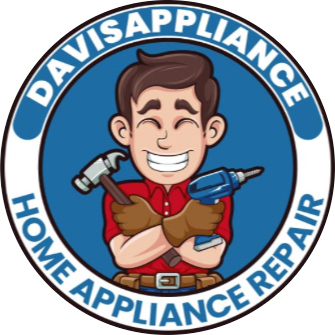BLOG
How to Troubleshoot Common Appliance Problems Before Calling a Repairman
When an appliance breaks down, it’s easy to panic and assume that you need a professional repair. However, many appliance issues are minor and can be solved with a little troubleshooting. From refrigerators that stop cooling to washers that refuse to start, there are several common problems that homeowners can fix themselves before calling for professional help.
In this post, we’ll guide you through some of the most common appliance problems and provide troubleshooting tips for each. By following these steps, you can save both time and money, and potentially extend the life of your appliances.
Refrigerator Not Cooling Properly: What You Can Check
Your refrigerator is one of the hardest-working appliances in your home. If it’s not cooling properly, food can spoil quickly, leading to waste and frustration. Before you schedule a repair, check a few basic things.
- Is the Power On? First, ensure that the refrigerator is plugged in and that the power is working. Check the outlet by plugging in another appliance or device. If the outlet is working, check the refrigerator’s fuse or circuit breaker.
- Dirty Condenser Coils: Dirty condenser coils are one of the most common reasons for refrigerator cooling problems. If your fridge’s coils are covered in dust and dirt, it can reduce cooling efficiency and lead to overheating. Clean the coils using a vacuum or coil brush, ensuring proper airflow.
- Thermostat Settings: Check the thermostat settings to make sure they are set to the right temperature. If it’s too high, the refrigerator will not cool adequately.
- Check the Door Seal: If your fridge door doesn’t seal properly, warm air will enter, making it harder for the appliance to maintain a cool temperature. Inspect the rubber seals for cracks or dirt, and clean them regularly to keep them functioning properly.
By taking these basic steps, you can often solve refrigerator cooling problems without having to call a repair professional.
Washer Not Spinning: Troubleshooting Tips
A washer that won’t spin is a common problem for homeowners. However, there are several simple checks that you can perform before reaching out to a professional.
- Unbalanced Load: One of the most frequent reasons a washer fails to spin is an unbalanced load. If the laundry is unevenly distributed inside the drum, it can prevent the washer from spinning properly. Open the washer and redistribute the load evenly to see if the problem resolves.
- Clogged Drain Pump: If the washer is not draining, it may be due to a clogged drain pump. Check for small items such as socks, lint, or other debris that may have become trapped in the drain pump. Cleaning out the drain will often fix the issue.
- Door Lock Issue: Many washers have a safety mechanism that prevents the drum from spinning if the door isn’t fully closed or locked. Check to see if the door is properly shut and the latch is functioning.
If these simple steps don’t fix the issue, it may be time to call a professional for further repairs.
Dryer Not Heating: Simple Fixes to Try
If your dryer isn’t producing heat, clothes can stay wet even after a full cycle. Before scheduling a service call, there are a few things you can check yourself to solve the problem.
- Check the Power Supply: If your dryer isn’t heating, the first thing you should check is the power supply. Electric dryers require both a 120-volt and a 240-volt connection. If either is interrupted, the dryer may run, but the heating element won’t work. Check the breaker panel for any tripped circuits.
- Clean the Lint Trap and Vent: A clogged lint trap or vent can prevent the dryer from heating properly. Make sure the lint trap is clean, and inspect the vent for blockages. If the vent is blocked, the dryer will struggle to release heat, causing it to overheat and shut off prematurely.
- Thermal Fuse: Many dryers have a thermal fuse that prevents overheating. If the thermal fuse is blown, the dryer will not produce heat. This part is easy to replace, but if you’re unsure how to do so, it may be best to call in a professional.
Dishwasher Not Draining: Simple Solutions to Try
A dishwasher that’s not draining properly can leave you with a sink full of dirty water. Here are some troubleshooting tips before you call a repair technician.
- Check the Drain Hose: The drain hose can become clogged with food particles or debris, which can prevent proper drainage. Inspect the hose for any kinks or blockages, and clean it out if necessary.
- Garbage Disposal: If your dishwasher is connected to a garbage disposal, a clog in the disposal can cause drainage issues. Check the garbage disposal for any obstructions and clear it out to restore proper drainage.
- Filter Cleaning: Dishwashers have a filter that can become clogged with food particles over time. If your dishwasher isn’t draining, check and clean the filter regularly to ensure proper water flow.
Stove, Oven, and Cooktop Problems: Troubleshooting Tips
Stove and oven issues can range from burners not lighting to uneven heating. Here are a few things to check before calling for professional help.
- Burner Not Lighting: If your gas burner isn’t lighting, it could be due to a dirty burner or igniter. Check for food debris around the burner and clean it thoroughly. If the igniter is faulty, it may need to be replaced.
- Uneven Heating: If your oven is heating unevenly, it could be a problem with the heating element or the oven thermostat. Check the element for visible signs of wear, and calibrate the thermostat if necessary.
- Cooktop Problems: If your electric cooktop isn’t heating properly, check for any broken or malfunctioning heating elements. If a burner isn’t heating, try swapping it with another burner to determine if the issue lies with the burner or the wiring.
Vintage Range Troubleshooting: Keep Your Classic Appliance Running Smoothly
If you have a vintage range like an O'Keefe & Merritt or Wedgewood, it’s important to be familiar with its specific issues. These classic appliances may need a little extra care to keep them running smoothly.
- Gas Flow Issues: Many vintage ranges run on gas, which can sometimes have issues with the gas flow. Check the gas connection to ensure it’s open and the burner isn’t clogged.
- Igniter Problems: The igniter in vintage ranges can wear out over time. If the igniter is faulty, it may need to be replaced. If you're unsure how to fix this, professional restoration can keep your range running like new.
When to Call a Professional Appliance Repair Technician
While many minor appliance problems can be solved with basic troubleshooting, there are times when it’s best to call in a professional. If the issue persists after you’ve completed these steps or if you suspect a more serious problem (such as a gas leak or electrical malfunction), it’s time to reach out to a professional appliance repair company like Dave’s Appliance Repair.
Whether it's your refrigerator, stove, washer, or vintage range, getting a professional opinion early on can prevent further damage and save you from expensive repairs down the line.
Don’t wait for your appliance to fail completely. If you're unable to troubleshoot the problem, contact Dave’s Appliance Repair today at (530) 662-2911 to schedule a service appointment. We’ll get your appliances back to working order in no time!
DISCOVER WHAT OUR CUSTOMERS HAVE TO SAY ABOUT US
REVIEWS
REVIEW US ON GOOGLE
our process
Our process is simple and only contains a few simple steps


proudly serving these areas
Davis
El Macero
Dixon
Winters
Woodland

